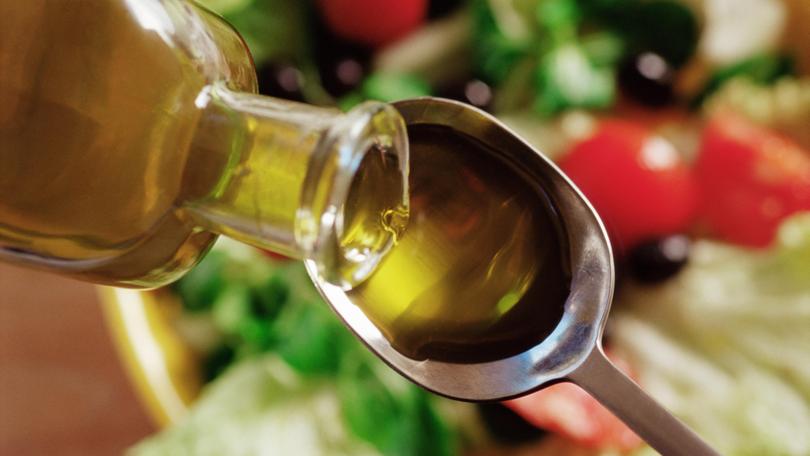SARAH DI LORENZO: The complete guide to cooking oils and how they affect your health

The confusion about what is the best oil to use and what to avoid can be completely overwhelming — you only need to stand in front of the extensive selection of liquid lipids at the supermarket to feel the confusion over which one is best for your cooking method or recipe.
The current range of oils can include coconut, peanut, sunflower, safflower, peanut, avocado, walnut, vegetable, olive oil, extra virgin olive oil, flaxseed, canola, hemp, sesame, rice bran, blended vegetable, grape seed oil, infused oils, macadamia, sunflower and extra virgin olive oil blends.
That’s not including the extra options proudly displayed on the packaging: spray, raw, cold-pressed and unrefined.
Sign up to The Nightly's newsletters.
Get the first look at the digital newspaper, curated daily stories and breaking headlines delivered to your inbox.
By continuing you agree to our Terms and Privacy Policy.Ultimately, what oil you choose to use can have an impact on your health. We know through studies that people who regularly consume extra virgin olive oil have a lower risk of cholesterol, cardiovascular disease and blood pressure.
But you only have to look at social media to be swamped by messages about seed oils being bad for you and damaging your health because they are high in omega 6.
The belief behind that is omega 6 causes chronic inflammation, which is behind many health conditions such as obesity, dementia, Type 2 diabetes as well heart disease.
We are seeing all these diseases increasing in the Western world and when it comes to current consumption of omega 6 to omega 3 the ratio is 15:1 because seed oils are extensively used in processed foods. The ratio should be 1:1, so the solution is to cut out processed foods to change the ratio.
The thing about omega 6 is that it does compete with a place in the cell membrane but many cells depend on omega 3 to function properly.
Making sure you are getting enough omega 3 is key when it comes to oils, given the world we live in today.
A great way to get more omega 3 is to make sure you are using flax seed and extra virgin olive oil as a dressing to all meals daily. These oils are linked to lowering LDL cholesterol, type 2 diabetes, brain disease, inflammation and blood pressure. Fatty fish, avocado and walnuts are also excellent sources of Omega-3.
When it comes to cooking with oil, the crucial factor is the smoke point. That’s the temperature at which oil starts to burn.
When oil is heated past its smoke point, the fat starts to break down, releasing free radicals that are dangerous to our health, attaching to living tissue and causing disease. Burnt oil will also change the flavour of the food.
When you are thinking about your choice of oil in the supermarket, think about what type of person you are when it comes to cooking. This can really help you choose wisely.
There are many oils that have a high smoke point. If you are someone who prefers to cook at a high heat then avocado oil has the highest smoke point of all oils. Other oils you could consider are canola, sunflower oil, safflower, peanut, rice bran, coconut and sesame oil.
Oils with a low smoke point are best for cold recipes and salad dressings, such as flax oil and walnut oil.
But if I was to choose the best oil of all my choices, I would go with extra virgin olive oil.
While it has a good smoke point, it is also perfect for all other recipes. It is the perfect all-rounder, plus it is linked to lowering inflammation, lowering blood pressure, lowering heart disease risk, lowering bad cholesterol while raising good cholesterol and is also excellent for our brain health.
Olive oil contains of oleic acid which is a monounsaturated fat, which is why it really is the healthiest oil. Olives are also rich in antioxidants called polyphenols, and it is these micro nutrients that lower the risk of disease as well.
As a general rule there is an oil for everything you need, you could keep avocado oil for high heat cooking, coconut oil for a healthy treat, sesame for a stir-fry and then walnut for your salads. Much of this comes down to flavour.
For a safe all-rounder, extra virgin olive oil is the best.
